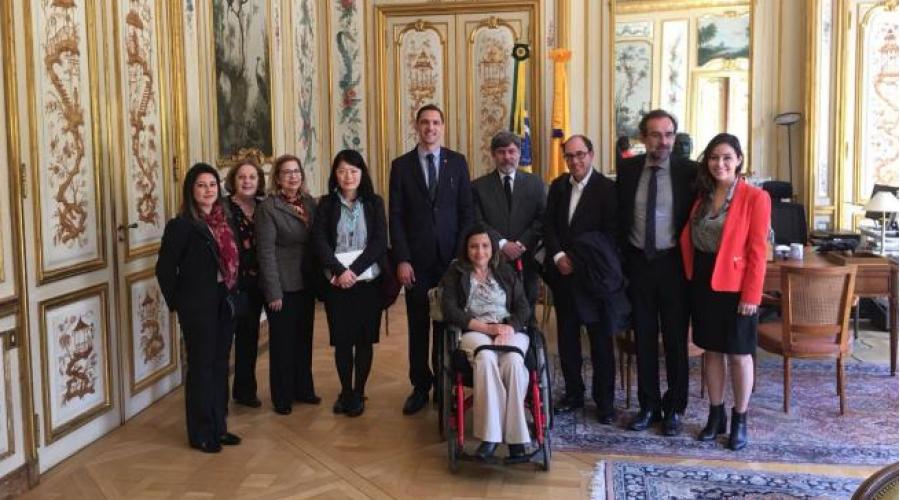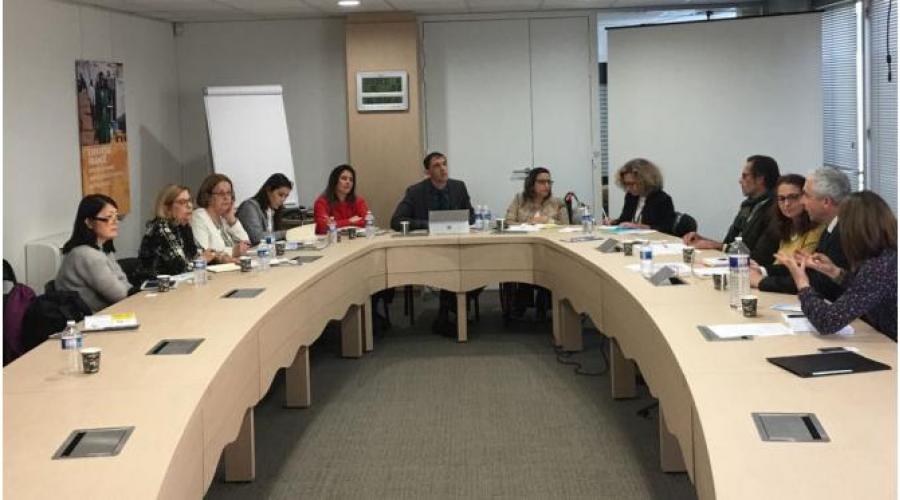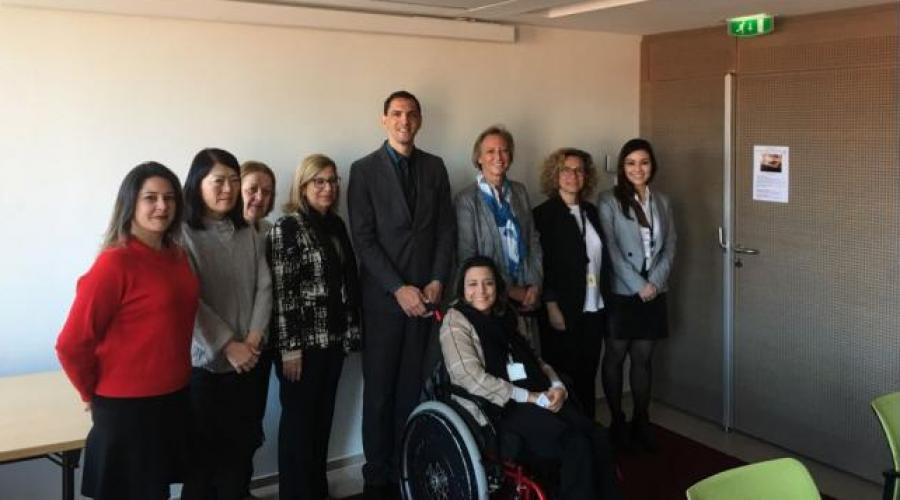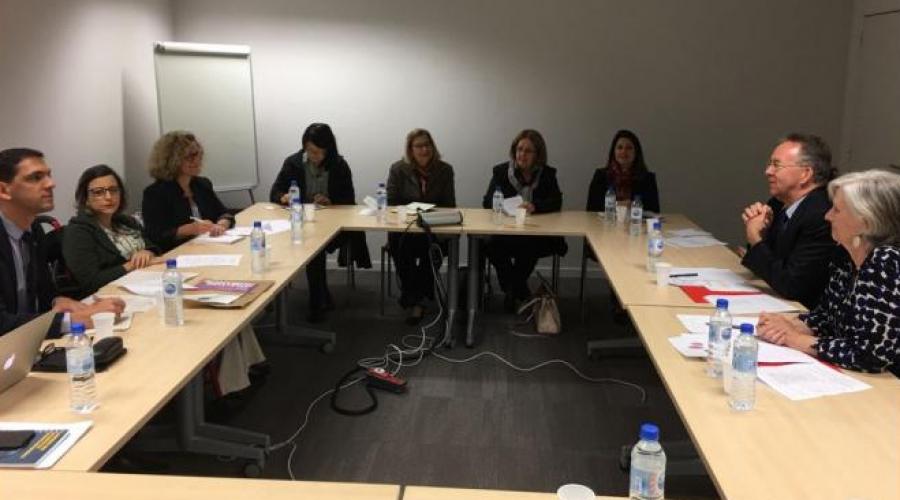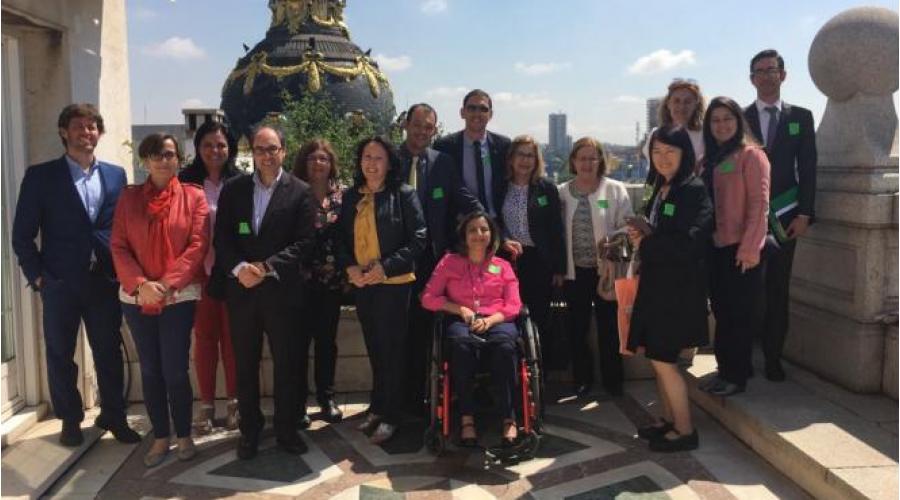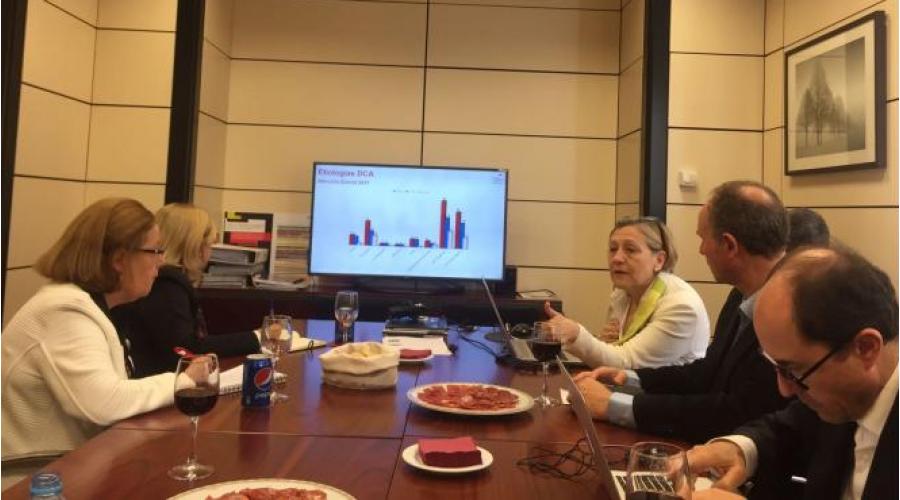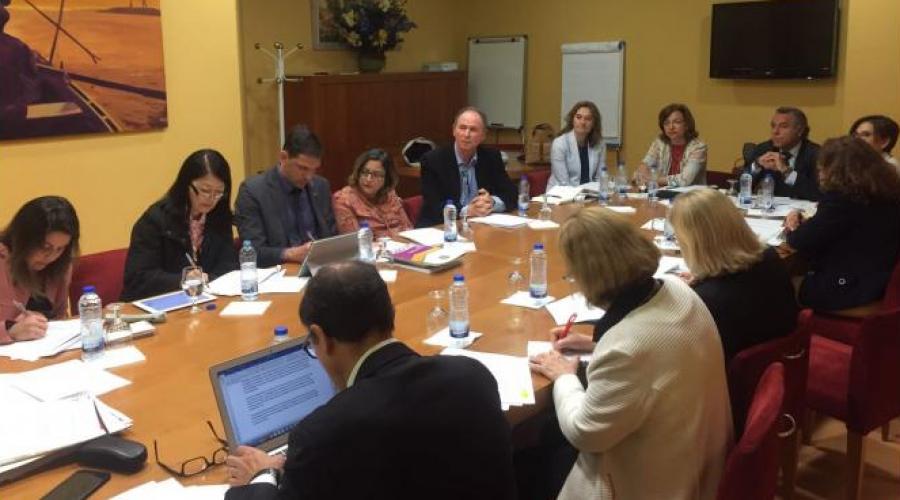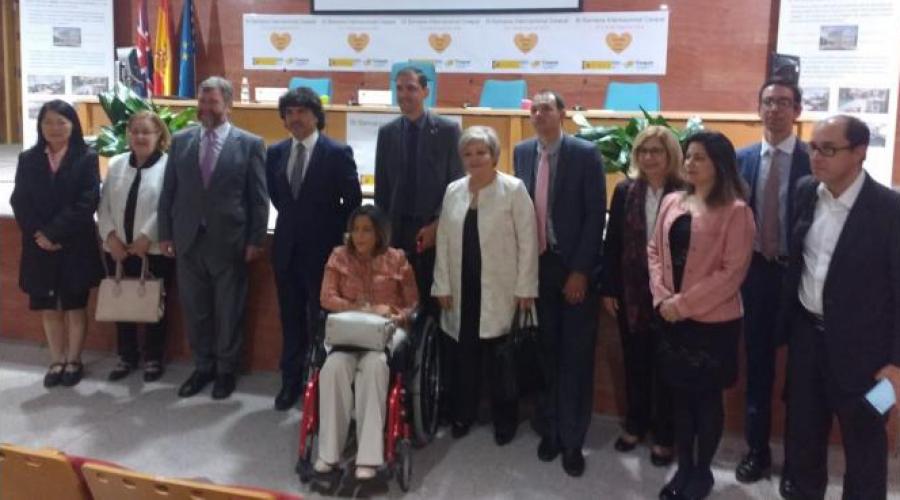2018-05-23
Brazilian Mission looks into French and Spanish disability assessment models
On 17-22 May, experts from the MDH (Ministry of Human Rights) attended a technical mission to gain insight into the disability assessment systems in place in France and Spain, their perspective on the ground, disability information systems, government agencies, assessment teams and funding. This mission is part of the project aimed at developing the sector dialogue under the strategic partnership between the European Union and Brazil in order to promote the rights of persons with disabilities, especially with regard to the exchange of experiences on the subject.
Carolina Sanchez Gomes, Director of Thematic Policies with the National Secretariat for the Rights of Persons with Disabilities at MDH, and other Brazilian officials visited organisations and institutions that are involved with or are part of the disability assessment system in both countries, such as the Ministry of Labour and Social Affairs and the Centre for the Assistance of Persons with Disabilities in Spain; and the Departmental Homes for Persons with Disabilities (Maisons Départementales des Personnes Handicapées – MDPH) in France. The purpose was to learn about disability assessment in those countries by looking at their strengths and challenges in order to provide technical inputs to the implementation or improvement of disability assessments in the countries involved.
The new concept of disability set forth by the United Nations’ Convention on the Rights of Persons with Disabilities called for changes in the regulations and standards of countries that have ratified it. As such, assessment of this condition for the recognition of rights and access to public goods and services is undergoing significant changes around the world.
"When countries ratified the convention on the rights of persons with disabilities in 2008, they agreed to assess disability in a new fashion according to WHO requirements since disability assessments are generally based on the medical model (ICD). However, today disability is defined by physical, sensorial, mental, and intellectual constraints when interacting with barriers in the environment. And this approach to assessing disability (ICF) is a challenge for every country in the world,“ says Ms. Gomes.
According to Carolina, Brazil is still at a nascent stage, so the mission is important in order to gain an understanding of methods of disability assessment used in other countries, especially in Europe, considering the pros and cons. In Brazil, the transition from a purely medical model of disability to a biopsychosocial model as established by the Convention and supported by the Brazilian Law on the Inclusion of Persons with Disabilities is underway, and there are achievements and challenges in this development to be shared with the European Union. Both the design and implementation of disability assessment tools are currently challenges and demands for the various countries.
European Models
Anderson Jose Sant'Anna de Oliveira, Coordinator-General for Monitoring Programmes, Projects and Agreements with the MDH, believes that the visits to Madrid and Paris are fundamental to provide insight into disability assessments in these two European countries by expanding on the knowledge and types of public policies on disability assessment in Europe. "We also believe we learn a great deal from the accessibility policies from both countries and what their governments do to ensure inclusion of disabled people, in addition to assessing the various types of disability. In France, we learned that the system is mixed. They continue to use the ICD model, but are incorporating functionality issues. It's a great model,” he said.
According to Mr. Oliveira, since Spain has been developing public policies based on an assessment system that draws on the International Classification of Functioning, Disability and Health (ICF) according to WHO requirements, expectations of gaining a better understanding of policies and projects are very high. "We don’t have much time in this mission, but it’s been a very rich experience."
Brazilian Model
In Brazil, disability assessments currently vary, and are performed by various public and private organisations. According to Carolina, “we are making headway, we are still testing and investigating policies that are consistent with the new disability assessment criteria, that is, an integral model that encompasses more than simply physical or mental criteria.” Ms. Gomes said there that a date for implementation of the change has not yet been set since the new assessment tools are still being tested and cannot be used in the real world before they are validated.
The most significant changes involve the criteria for disability assessment, which will no longer be a mere medical evaluation and will become an integral evaluation. "This new approach to assessments looks into architectural barriers, environmental barriers, communication barriers, and attitudinal barriers, not just an individual’s body. It is the context that drives disability, not the body per se,” explained the MDH Director.
The Brazilian experts consider the strategic support provided under the Sector Dialogues Facility as a fundamental step for the development of public policies for people with disabilities. "This is a critical facility because without the support of the European Union we wouldn’t have the strength to carry on. The mission helps us learn about more issues, such as technical assistance, accessibility issues, policies that have an impact on improvements across the board for people with disabilities,“ said Ms Gomes.
Mr. Oliveira pointed out that international support and the reinforcement provided by embassies in all levels in Europe are being crucial and flawless during their trip. "The mission will not end in Madrid – in June we will hold a seminar in Brasilia with the presence of delegations from Paris and Madrid to further expand knowledge on the topic and to contribute to the implementation of disability assessment systems in the countries involved."
Last news
-
23/10/2020
.jpg) Study addresses regulatory and governance challenges to decarbonize and digitalise the energy sector
Study addresses regulatory and governance challenges to decarbonize and digitalise the energy sector
-
16/10/2020
.jpg) Joint press release - 8th EU-Brazil High Level Political Dialogue on the Environment Dimension of Sustainable Development on 16 October 2020 (virtual meeting)
Joint press release - 8th EU-Brazil High Level Political Dialogue on the Environment Dimension of Sustainable Development on 16 October 2020 (virtual meeting)
-
03/08/2020
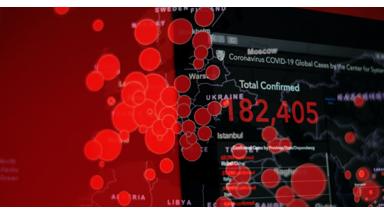 Webinar discusses the importance of data protection in the COVID-19 pandemic
Webinar discusses the importance of data protection in the COVID-19 pandemic
-
22/05/2020
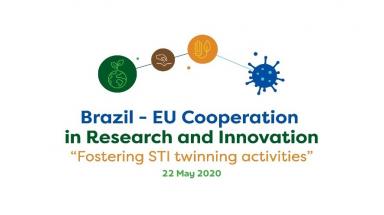 European Union and Brazil decide to cooperate in projects to fight COVID-19
European Union and Brazil decide to cooperate in projects to fight COVID-19

